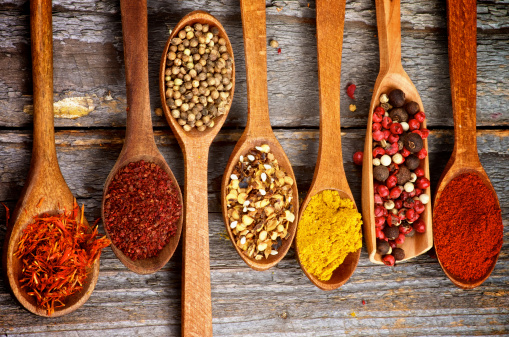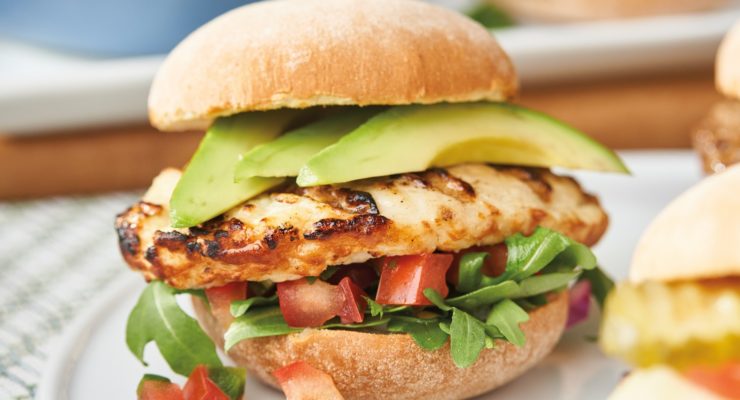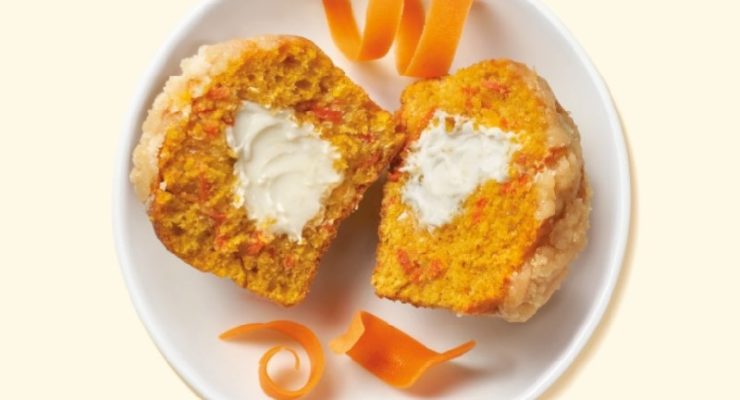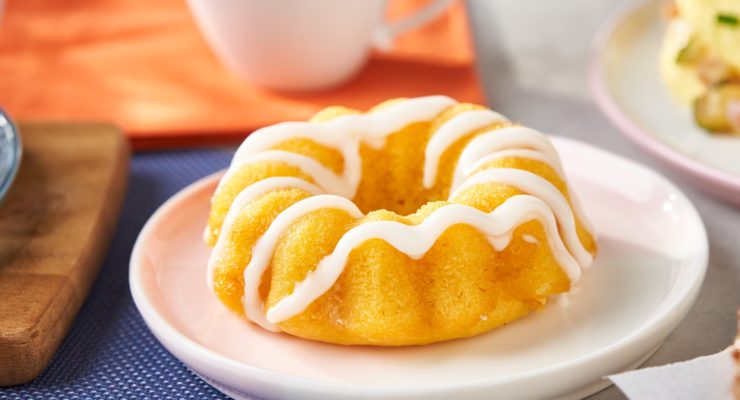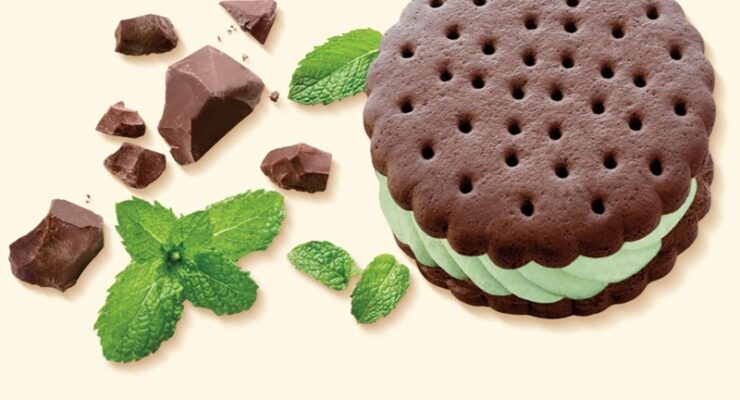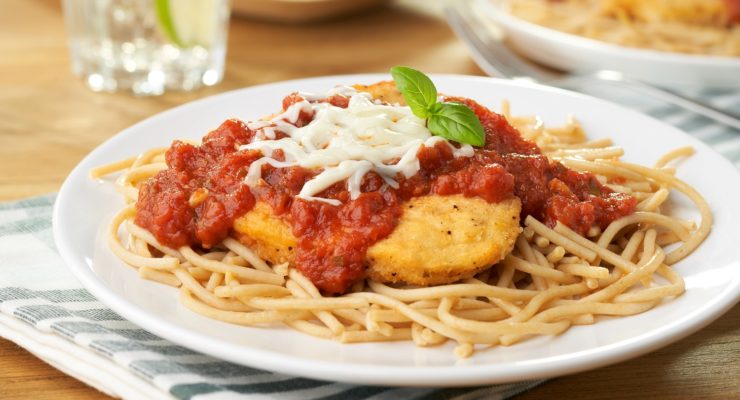Grocery Shopping 101: Your Guide to the Baking Aisle
Article posted in: Nutrisystem for Men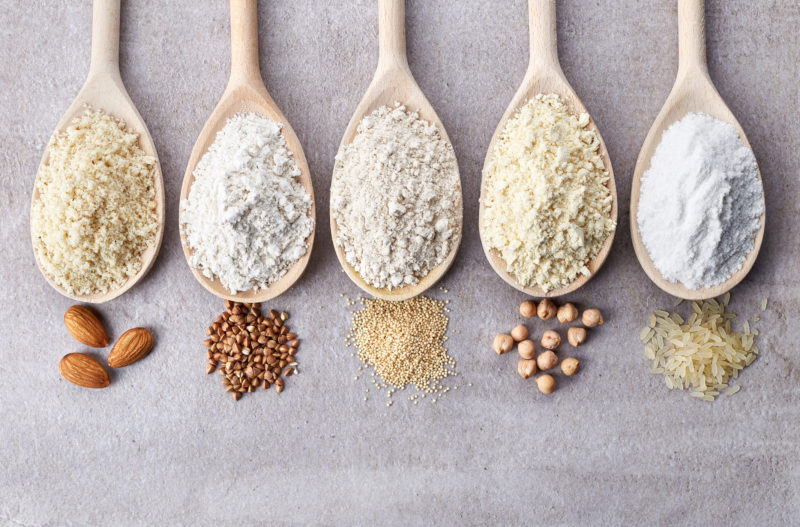
You might be surprised to discover that the Nutrisystem menu offers you deliciously indulgent treats such as cookies, brownies, and cupcakes that you can enjoy even while you are making progress toward your weight-loss goal. As you lose excess pounds with your Nutrisystem plan, you’ll also be learning about how to make healthy eating choices for yourself. When you’re ready to move into the Nutrisystem Success program and maintain your target weight, you will be prepared to shop for more of your weekly groceries on your own. Here’s how to make sure you stay on track when you hit the aisle of baking supplies.
FLOUR
Turning wheat into bleached white flour strips away the fiber and much of its nutrients, leaving behind simple carbohydrates that cause your metabolism to spike and then fall quickly. Whole-wheat flour (be sure the word “whole” is in the ingredient list) is a healthier option than white flour because it slows down digestion, helping you to stay fuller longer. Today, you can also find flours made with ingredients other than wheat, including other whole grains and even legumes. They are high in fiber and many are gluten-free, for those who have difficulty digesting wheat products.
Best choices: Oat, millet, and buckwheat flours are made with whole grains and they can replace wheat flour in many recipes. Coconut flour is high in fiber and naturally sweet. Chickpea, soy, and almond based flours also come with a healthy dose of protein.
OIL
Cooking oils are simply liquid fats. While “fats” sound undesirable when you’re trying to lose or maintain weight, your body needs them to absorb nutrients from your food. Fats also help you feel full after you eat. In cooking and baking, oils help ingredients to blend and they give food an appealing texture. Liquid oils may be primarily polyunsaturated fats or monounsaturated (most types have some of each, but one kind usually dominates). Monounsaturated oils are healthiest, but either kind is better than the saturated fat in shortening or lard, the other types of fats found in the baking aisle.
Best choices: Olive oil is a monounsaturated fat that has been linked to reduced cholesterol and risk of cardiac disease. If you need oil with a less pronounced flavor, canola oil is a mild-tasting polyunsaturated fat that’s well-suited to salad dressings, sautéing and baking.
SWEETENER
Sugar comes in many forms and an excess of any of them may lead to drastic spikes and drops in your blood sugar, which may result in decreased energy levels and increased hunger. Sugar of all types comes with a lot of empty calories, calories that don’t contribute much nutritional benefit, like vitamins and minerals. However, when you need a little sweetener for baking or other recipes, “whole” food options are better than refined white sugar, because they provide you with small amounts of minerals and other nutrients. Just be aware that these are all “Extras” for those on a Nutrisystem weight loss plan, so you need to stick to the recommended serving sizes. Artificial sweeteners, such as saccharin (Sweet N’ Low brand), aspartame (Equal), and sucralose (Splenda) are low in calories, but some health experts warn that excessive amounts of them can also be harmful to your metabolism.
Best choices: Real maple syrup (not maple-flavored high fructose corn syrup—check the label), raw honey, and blackstrap molasses are all very sweet, but are not processed and stripped of nutrients like refined white sugar. Coconut sugar, which has a lower glycemic index than other natural sweetener types, works well in many recipes. Stevia is a leaf extract that’s extremely sweet, yet has zero calories.
VINEGAR
The many different types of vinegars, including those made from apples, rice, and red or white wine, are a healthy staple to keep on hand for all kinds of uses. Vinegars are low in calories and have many beneficial micronutrients. With the exception of balsamic vinegar, which counts as an Extra, they’re classified by Nutrisystem dietitians as Free Foods, so you can enjoy as much of them as you want. In fact, a study published by the National Institutes of Health found that regular “vinegar intake reduces body weight, body fat mass, and serum triglyceride levels” among overweight people. Herbed vinegars, such as those made with thyme, rosemary, or oregano, are an ideal dressing for salads and other vegetable dishes. Balsamic vinegar, made from grapes, is rich and flavorful, but it’s best used sparingly because it is higher in sugar than other types.
Best choices: Raw apple cider vinegar has not been pasteurized, so it’s teeming with probiotic microbes that help keep your digestion functioning smoothly. Red wine vinegar contains many of the same heart-protecting compounds for which red wine has become famous.
HERBS AND SPICES
Food with lots of flavor is just more appealing and satisfying than bland meals. In the baking aisle, you can find a wide variety of herbs and spices to put extra zip in your food. All of them are “Free” foods for those on a Nutrisystem weight-loss plan, so you can use as much as you want to season your food. When buying an herb or spice blend, just check the label to be sure it doesn’t have added salt or sugar.
Best choices: Cinnamon, cardamom and vanilla help food taste sweet without added sugar. Nutmeg, allspice, and ginger warm the flavor of many dishes, while chili powder adds heat that may amp up your metabolism. Turmeric is believed to reduce chronic inflammation on your body, which is a contributor to heart disease and other conditions.



